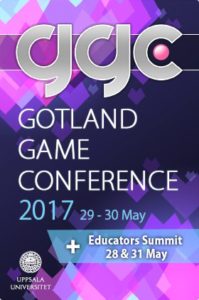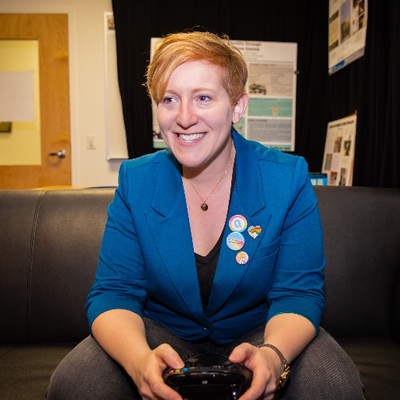 It’s been a few years since my last trip to the Gotland Game Conference, a wonderful event where industry and academic talks about games and culture meet student design work. Now I’m going back for 2017!
It’s been a few years since my last trip to the Gotland Game Conference, a wonderful event where industry and academic talks about games and culture meet student design work. Now I’m going back for 2017!
I first spoke at the Gotland games program (now “Uppsala University campus Gotland”) back in 2010 and then again in 2011. The faculty and students are all warm, thoughtful, and talented folks and I’m really looking forward to spending some time in Visby again this year.
For the 2017 conference, I’ll be giving a talk called, “Interrogating Empathy: Alternative Models of (Queer) Feeling in Video Games.” It’s related to the panel I ran (along with Teddy Diana Pozo and Whitney Pow) about queer affect and video games at SCMS in Chicago. Here’s the abstract.
Over the past few years, “empathy” has become a buzzword in game design and game scholarship: the new gold standard for supposedly immersive, impactful, and socially meaningful video games. This is nowhere more true than in games that address the perspectives of marginalized people. Many contemporary queer indie games, for instance, have been labelled “empathy games,” because they seem to give straight players the chance to experience what it feels like to be LGBTQ. However, a number of these game queer indie game-makers, such as Robert Yang, Mattie Brice, merrit kopas, and Anna Anthropy, have spoken out against “empathy,” which can actually describe the straight appropriation of queer lives. As Yang wrote in a recent blog post, “If you walk in someone else’s shoes, then you’ve taken their shoes.”
This talk interrogates the notion of empathy in video games and calls on designers and scholars alike to look for new models of what we feel when we play — especially when it comes to queer games. It draws from Donna Harraway’s concept of “being with” to explain how video games can allow us to exist alongside other perspectives without appropriating them. In this way, the talk argues for a model of feeling in video games that truly promotes social justice, instead of giving problematic lip service to the importance of “diversity.”
Thanks to Ulf and all the wonderful folks at Gotland for inviting me back this year. I can’t wait.

